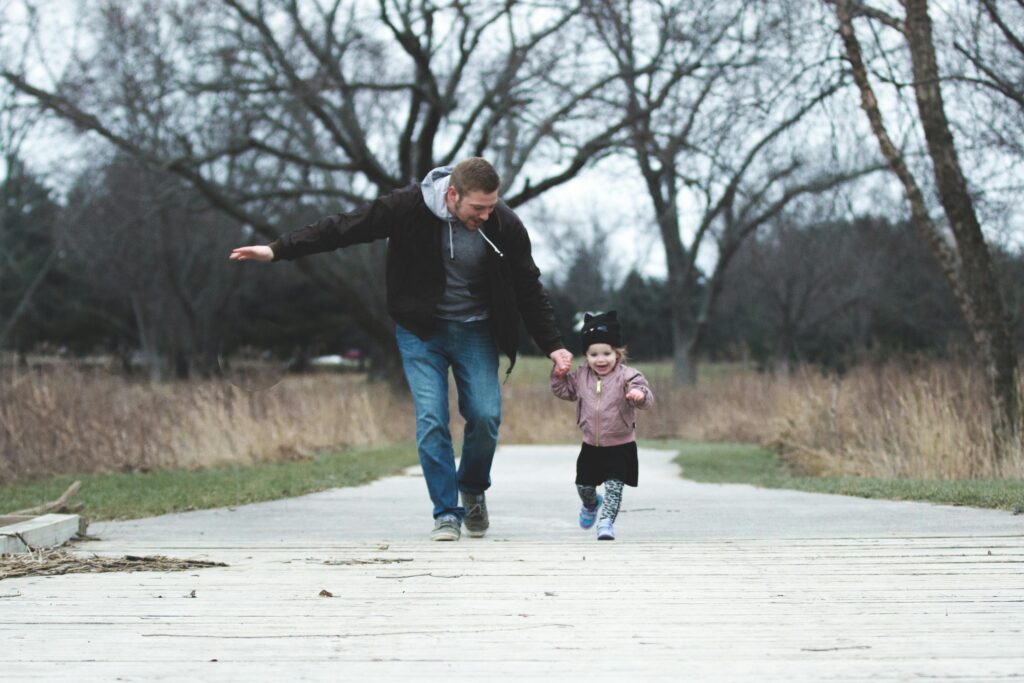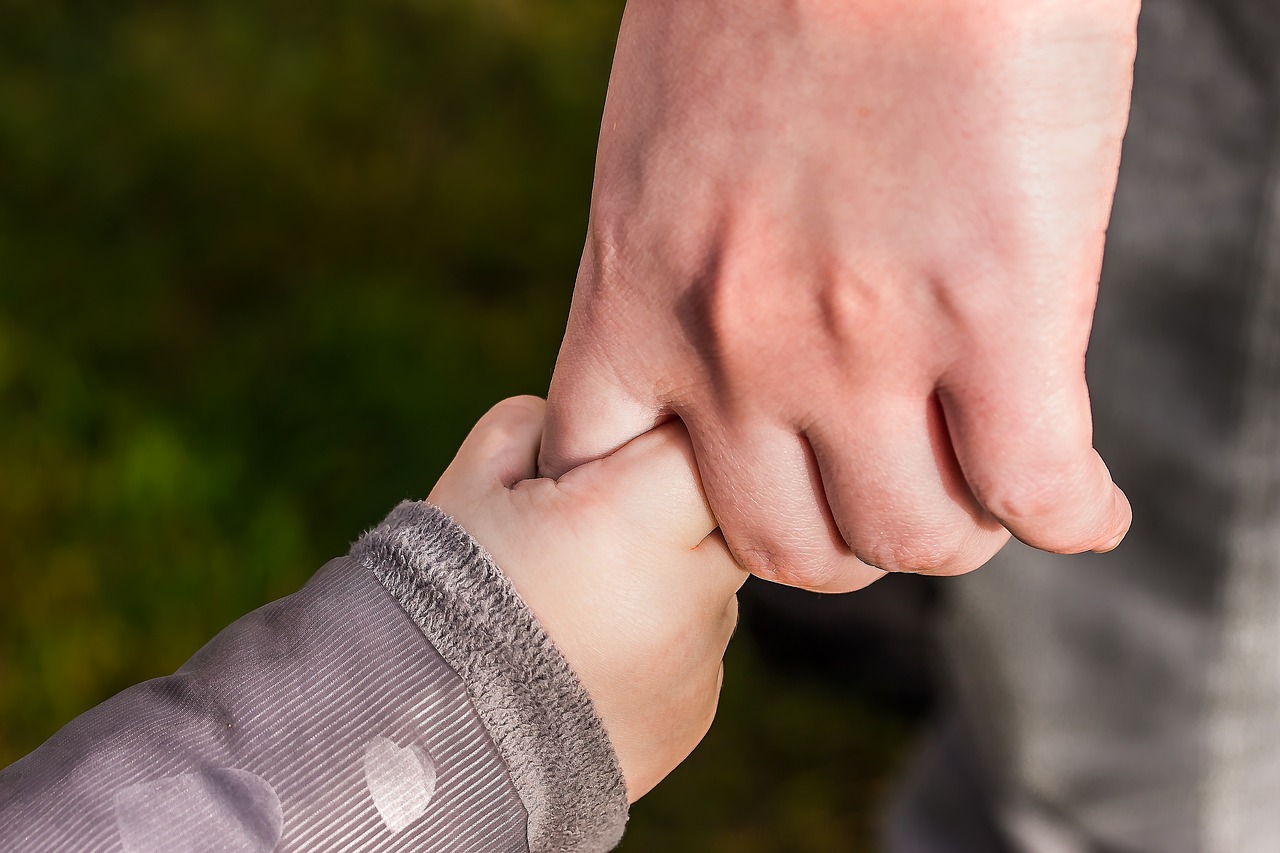Let’s talk about stress. We all experience it – deadlines, tantrums, the never-ending to-do list. But what you might not realize is how your stress can actually impact your child’s well-being.
Have you ever noticed how your stress levels seem to seep into every aspect of your life, including your interactions with your child? That’s not just a coincidence. Parent’s stress has a major effect on a child’s overall well-being, impacting their emotional and physical health in ways we may not even realize. It’s like a ripple effect, spreading its consequences far and wide.
Kids are like little sponges, soaking up the emotions around them. When you’re feeling stressed and on edge, they pick up on that anxious energy.

The Ripple Effect of Parental Stress
- Emotional Contagion: Your stress can energetically rub off on your child, making them feel anxious, irritable, or even withdrawn.
- Behavioral Changes: Stressed parents may be less patient or more likely to yell, leading to behavioral problems in children.
- Impact on Development: Chronic stress can affect a child’s developing brain, impacting their ability to learn and regulate emotions.
Don’t Panic!
This doesn’t mean you’re a bad parent if you feel stressed. We all do! The good news is, by managing your own stress, you can create a calmer and more positive environment for your child.
How A Parent’s Stress Impacts a Child
Understanding how stress is transferred from parent to child is essential in understanding its impact on a child’s well-being. Children are very perceptive and attuned to their parents’ emotions and behaviors, even when they may not have the words to express it. When a parent is under significant stress, whether it be due to work pressures, financial difficulties, or relationship strains, their child may unknowingly absorb and internalize that stress. This transference can manifest in various emotional and behavioral consequences.
Emotionally, children may experience heightened levels of anxiety, fear, and sadness when their parents are stressed. They may become more irritable and easily upset, struggling to regulate their own emotions effectively. Additionally, they may develop a sense of guilt or responsibility for their parents’ stress, feeling the need to fix or solve the problems causing it. This emotional burden can be overwhelming for a child, impacting their overall well-being and ability to thrive.
Behaviorally, children may show signs of distress and regression when exposed to parental stress. They may have difficulty concentrating in school, experience sleep disturbances, or exhibit changes in appetite. Some children may become withdrawn and socially isolated, while others may act out and engage in disruptive behaviors as a means of expressing their internal turmoil. These behavioral consequences can not only impact a child’s academic performance and peer relationships but can also have long-lasting effects on their overall development.

The Transference of Stress
The transference of stress from parent to child can also have surprising physical health implications. Research has shown that children exposed to chronic parental stress may be more susceptible to developing a range of physical ailments, including headaches, digestive issues, and weakened immune systems. The constant activation of the body’s stress response system can take a toll on a child’s physical well-being, leaving them vulnerable to illness and other health challenges.
Fortunately, there are practical strategies and actionable steps that parents can take to break the chain of stress and create a nurturing environment for their child. By prioritizing self-care and stress management techniques, parents can better regulate their own stress levels, making it less likely to impact their child. Additionally, open and honest communication with children about stress can help alleviate their feelings of guilt and responsibility, allowing them to understand that stress is a natural part of life and not something they need to carry on their own.
The Ripple Effect of Parental Stress
- Emotional Contagion: Your stress can literally rub off on your child, making them feel anxious, irritable, or even withdrawn.
- Behavioral Changes: Stressed parents may be less patient or more likely to yell, leading to behavioral problems in children.
- Impact on Development: Chronic stress can affect a child’s developing brain, impacting their ability to learn and regulate emotions.
Don’t Panic!
This doesn’t mean you’re a bad parent if you feel stressed. We all do! The good news is, by managing your own stress, you can create a calmer and more positive environment for your child.

Breaking the Chain: Strategies for Creating a Nurturing Environment
By breaking the cycle of stress involves implementing stress management techniques, and fostering open communication within the family, caregivers can help protect their children’s physical health and overall well-being.
Taking action to create a nurturing environment is essential in safeguarding a child’s well-being in the face of parental stress. By prioritizing self-care, parents can lead by example and show children the importance of managing stress and recognizing their own emotions. Encouraging healthy coping mechanisms, such as engaging in physical activities, practicing mindfulness, or pursuing creative outlets, provides children with alternative ways to deal with stress.
Establishing routines and boundaries can also help create a stable and predictable environment, reducing anxiety and providing a sense of security for children. Consistent bedtimes and mealtimes, as well as dedicated family time, can contribute to a structured and supportive atmosphere. Additionally, promoting open communication within the family by actively listening and validating children’s feelings creates a safe space for them to express their emotions and seek support when needed.
Incorporating stress-reduction techniques into daily life is beneficial for both parents and children. Relaxation techniques, such as deep breathing exercises or guided imagery, help children manage stress and cultivate a sense of calm. Engaging in activities that promote physical and emotional well-being, such as regular exercise, spending time in nature, or practicing gratitude, contributes to a positive and nurturing environment.
Getting professional help when needed is crucial. Recognize when your stress is beyond what can be managed independently and seek support from therapists or support groups for resources and guidance. The goal is to break the chain of stress and empower both yourself and your children to thrive.

Taking Action
To effectively address and reduce the negative impact of your stress on your child’s well-being, it is important to take action.
One essential step towards empowerment is self-care. It is crucial to prioritize your own well-being, as this ultimately benefits their children. Taking time to engage in activities that promote relaxation and self-rejuvenation can significantly reduce your stress levels. Whether it’s practicing mindfulness, engaging in regular exercise, or pursuing hobbies and interests, self-care allows you to recharge and better manage their emotions.
Furthermore, fostering open communication within the family is key for both parents and children. Encouraging an environment where thoughts and emotions can be expressed without judgment or fear of consequences creates a safe space for everyone to share their challenges and concerns. This allows parents to better understand and respond to their child’s needs, ultimately strengthening the parent-child bond.
Seeking external support is another important aspect of taking action and empowering oneself and one’s child. Recognizing when your stress is overwhelming and seeking help to navigate through difficult situations and learn coping strategies tailored to your needs.
Connecting with other parents facing similar challenges can provide a sense of belonging and a network of support. Joining support groups or seeking online communities dedicated to discussing stress can provide valuable insights, advice, and empathy. These connections can alleviate feelings of isolation and offer a space to share experiences and learn from others.
By proactively addressing your stress, you also set an example for their children. Children learn by observing and imitating their parents, so when parents model effective stress management techniques, children are more likely to develop healthy coping mechanisms as well.
The influence of parental stress on a child’s well-being is profound and far-reaching. The transference of stress impacts a child emotionally, behaviorally, and even physically. By prioritizing self-care and connection, you can break the cycle of stress and create a future where our children thrive.




